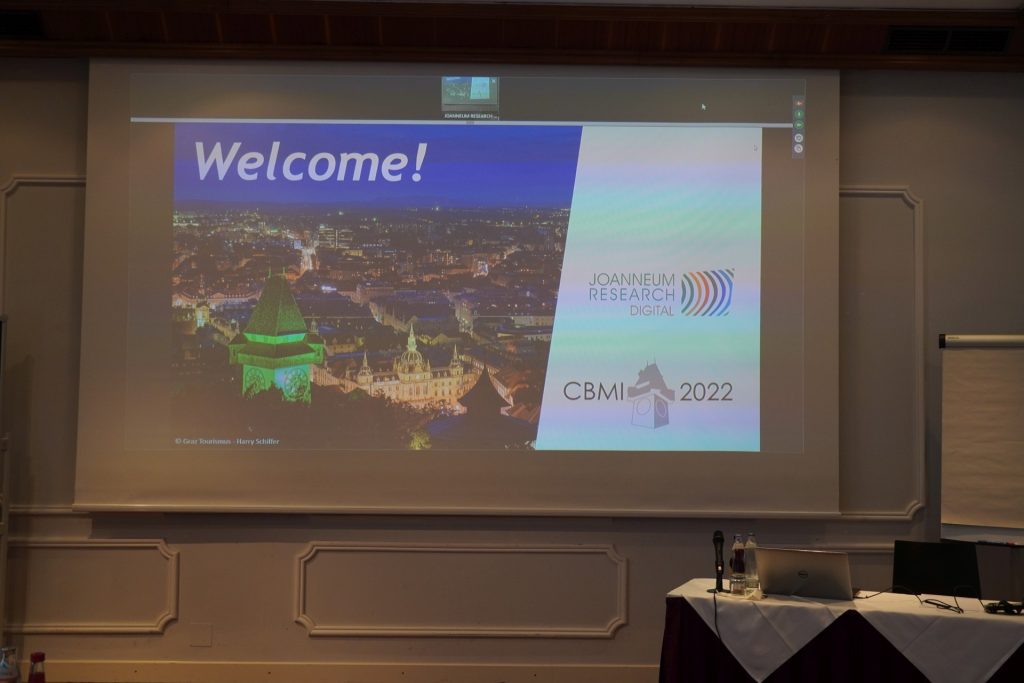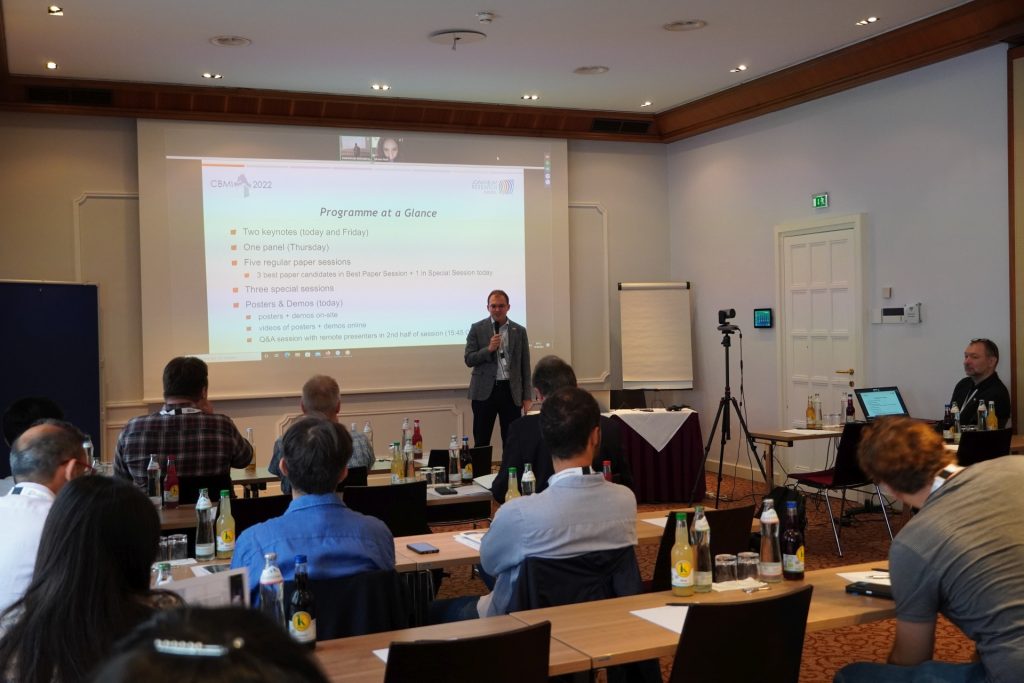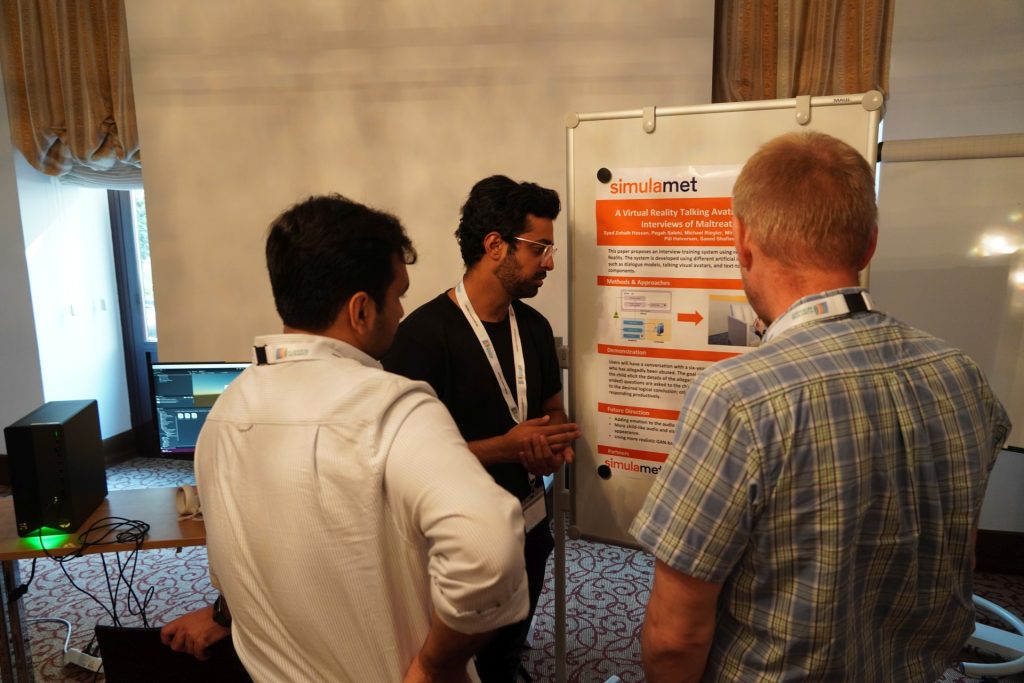AI4Media supporting the CBMI 2022 Conference
The 19th International Conference on Content-based Multimedia Indexing (CBMI2022) took place as a hybrid conference in Graz, Austria, from Sept. 14-16, 2022, organised by JOANNEUM RESEARCH, with the support of AI4Media and ACM SIGMM. Probably still as an effect of the COVID pandemic, the event was a bit smaller than in previous years, with around 50 participants from 18 countries (13 European countries, the rest from Asia and North America). About 60% were attending on-site, the other via web conference.

The conference program included two keynotes. The opening keynote by Miriam Redi from Wikimedia analysed the role of multimedia assets in a free knowledge ecosystem such as the one around Wikipedia. The closing keynote by Efstratios Gavves from the University of Amsterdam showcased recent progress in machine learning of dynamic information and causality in a diverse range of application domains and highlighted open research challenges.

With the aim to increase the interaction between the scientific community and the users of multimedia indexing technologies, a panel session titled “Multimedia Indexing and Retrieval Challenges in Media Archives” was organised. The panel featured four distinguished experts from the audiovisual archive domain. Brecht Declerq from meemoo, the Flemish Institute for Archive, is currently the president of FIAT/IFTA, the International Association of TV Archives. Richard Wright started as a researcher in speech processing before he became a renowned expert for digital preservation, setting up a series of successful European projects in the area. Johan Oomen manages the department for Research and Heritage at Beeld en Geluid, the Netherlands Institute of Sound and Vision. Christoph Bauer is an expert from the Multimedia Archive of the Austrian Broadcasting Corporation ORF and consults archives of the Western Balkan countries on digitisation and preservation topics.
The panel tried to analyse why only a small part of research outputs makes it into productive use at archives and identified research challenges such as the need for more semantic and contextualised content descriptions, the ability to easily control amount vs. accuracy of generated metadata and the need for novel paradigms to interact with multimedia collections beyond the textual search box. At the same time, archives face the challenge of dealing with much richer metadata, but without the quality guarantees known from manually documented content.
The program included a special session on learning from scarce data in the multimedia domain, organised by AI4Media partners. The session included three papers, covering topics of learning person detection from content generated with computer games, applying Hebbian learning approaches for scarce data problems in multimedia and applying semi-supervised learning approaches to few-shot object detection.


